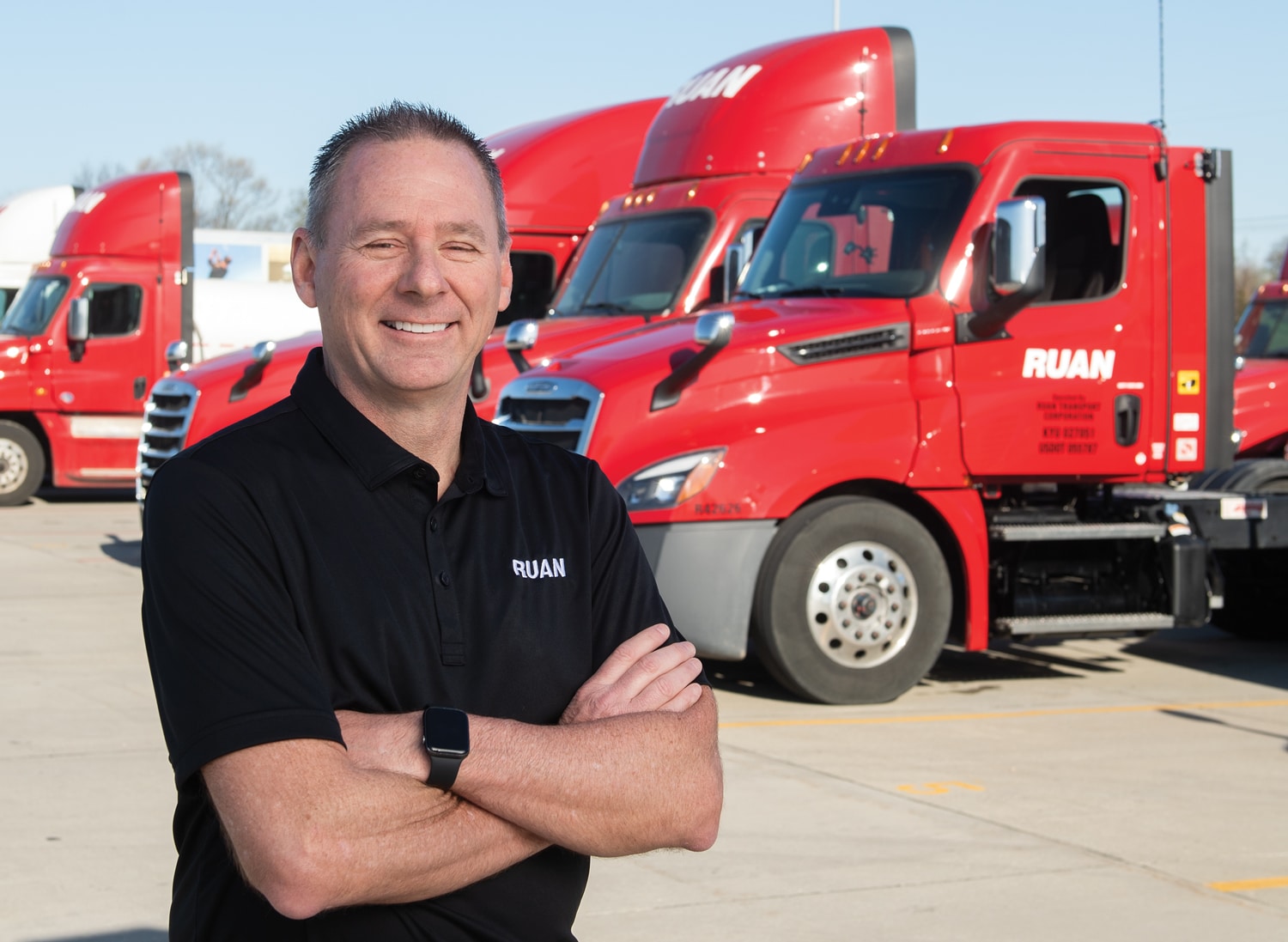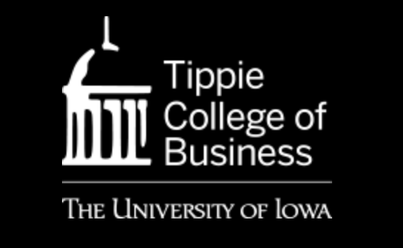Get to know Jeff Harpole at Ruan Transportation Management Systems

Michael Crumb Apr 26, 2024 | 6:00 am
5 min read time
1,254 wordsAll Latest News, Business Record Insider, TransportationJeff Harpole joined Ruan Transportation Management Systems in March 2020 after launching his career in transportation and logistics with Schneider National in 1990. He spent 17 years with Schneider, moving 10 times, with the last five years at the company’s headquarters in Green Bay, Wis.
His family moved to Nashville to be closer to other relatives. There, he began working for Dollar General, where he was responsible for the company’s outbound store delivery operation. Harpole later led all of the company’s transportation operations before leaving to join Ruan.
It’s those combined experiences that Harpole believes have prepared him well to lead his team at Ruan.
“It allows me in this role to help my team members who are going out and spending time with customers to understand their transportation network and allows me to coach them, provide support to them in understanding customers’ networks, and on the shipper side I understand some of the challenges they are faced with, and we can come in as a consultant to help improve efficiencies and reduce costs,” he said. “The experience between the two has set me up very well for the new position that I’m moving into.”
Harpole will become Ruan’s chief operating officer when Dan Van Alstine retires near the end of 2024. The Business Record recently had a chance to sit down with Harpole to discuss the current state of transportation and logistics.
The following interview has been lightly edited for clarity and brevity.
Has the transportation sector fully recovered to pre-pandemic levels?
Yes, from a transportation perspective. I do think the pandemic highlighted one of the biggest challenges that maybe isn’t as prevalent today but it’s still there, and that is a driver shortage. At the end of the day, there are a lot of people who don’t want the lifestyle that an over-the-road truck driver has and the challenges of a very difficult work environment. People today aren’t as interested in coming into the transportation industry. So the pandemic highlighted the driver shortage we have. Now, as of today, the demand is down and ultimately supply is up, so we have enough drivers to support the demand today, but the driver workforce is aging and nearing retirement age, and you don’t have as many people coming into it, so it’s going to be highlighted again in the very near term. What we’ve spent a lot of time doing is how to make the driver’s work life better. A large percentage of our drivers are home every day and have the same schedule so they can be home for soccer games and sporting events and other activities like we all want to be. So we try to create this very normal work environment in a difficult world of transportation.
What other challenges and opportunities is the transportation industry facing in the future?
There has been a lot of innovation in transportation over the last 20 to 30 years. You think about safety technology, a lot of tracking and tracing capabilities and giving shippers updates almost in real time to where their truck is. With that, the expectations remain even higher and higher. Some of the challenges that we do face as it relates to the industry is the ability to insure these 80,000-pound vehicles that are going up and down the road. You’ve seen some of the verdicts where unfortunate situations happen and trucking companies are assessed a high-dollar liability, so what that’s done is a lot of insurance companies have begun to pull out of this business and not be willing to insure people. So, I think that will be one that we’ll have to continue to work through. And then there’s the cost perspective, whether it’s purchasing equipment or paying the drivers a fair market wage, or maintaining the equipment or insurance. One of the things we have to do as an industry is use technology to reduce inefficiencies that are in the business today and take costs out so we’re not part of the inflationary challenges we have.
You talk about filling empty miles as part of that strategy. Can you describe what that is?
There’s a high percentage of trucks driving up and down the road that have an empty trailer. So if we have a customer where we take a fully loaded trailer to a store, that trailer has to return to the distribution center. We’re working with that customer to find a load to come back so we’re gaining revenue and sharing that revenue with the customer. It takes trucks off the road. It reduces the dependence on the number of drivers you have. It helps from a carbon footprint perspective and just an overall cost perspective. Probably the biggest opportunity out there right now is in that arena.
What is the future of AI in the transportation industry?
They’re testing autonomous trucks, but I think it’s a long way away. But I think there may be applications that may be here sooner rather than later. And that’s in a yard environment where you’re in an enclosed space, where the truck is picking up a trailer moving at a low rate of speed, where there aren’t people in there backing that trailer into a dock. Some manufacturers are testing that today and I could see that happening over the course of the next few years. There are lanes where an autonomous truck drives from point A to point B and then a driver comes in and takes control when it’s getting into a city or a yard. Before it’s a significant part of our business, that’s a long time away, but that technology is out there and they’re testing it more and more. I think it will happen in 10-plus years. I don’t think it’s going to be prevalent within my career, but you fast-forward and I think autonomous trucks are something, but in the short-term, it’s specific applications that you’ll see.
Describe your management style.
I’m a leader who believes in collaboration and teamwork. I don’t think about levels. You’ll never hear me introduce myself with my position. I view myself and this entire team as one team that works together to develop our people and to make our customer supply chain the most efficient that it can be. I focus on three things. I spend a lot of time talking about results. The second area that I spend time focusing on is relationships. And the third thing is people. I think everyone wants honest, direct feedback in a respectful way. It’s all about growing and developing.
Can you tell us about a book you’ve read and why you would recommend it?
I read “Unreasonable Hospitality: The Remarkable Power of Giving People More than They Expect” by Will Guidara. The premise of the book is exceeding customers’ expectations and making sure they have a really good experience. When I talk about my passion for customers and growing and developing people, it is not anything most people don’t already know, but it is a really good reinforcement that talks about making sure that you have a good relationship and whether it’s the customer or whoever you interact or engage with, making sure they walk away feeling good about the experience.
Age: 53
Hometown: Nashville, Tenn.
Family: Married; two children, a son, 17, and a daughter, 15.
Education: Bachelor of Science in management and leadership from Capella University in Minneapolis, Minn.
Activities: Traveling, spending time on the lake at their Nashville home, snow skiing and following children’s sporting activities.
Contact: jharpole@ruan.com

Michael Crumb
Michael Crumb is a senior staff writer at Business Record. He covers real estate and development and transportation.











